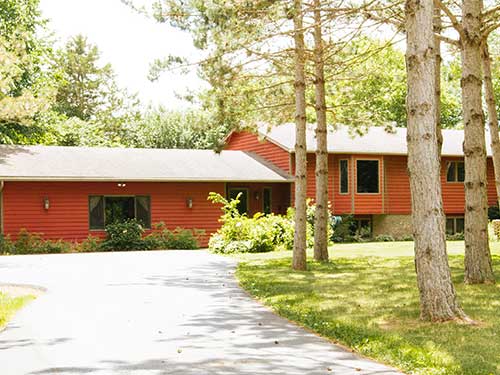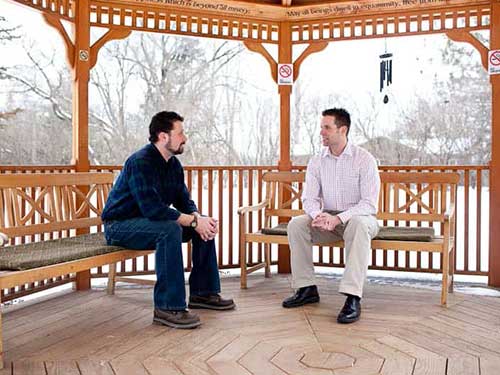Risks of Alcohol Overdose
Alcohol abuse and overdose: the risks
Alcohol is one of the most common drugs consumed across the planet. Made by fermenting yeast, starches, and sugars, alcohol is an intoxicating substance that can be found in liquor, wine, and beer. When it is ingested, alcohol has depressant effects on the body. Alcohol slows down the functioning of the brain, and as a result, it can interfere with coordination, speech, and good judgment, and it can also lower inhibitions.
Alcohol can be found in many different settings, from large parties to intimate gatherings. Many people are able to manage their drinking so that it does not interfere their daily lives. However, many other individuals struggle to keep their drinking under control. For these people, alcohol is a constant source of struggle, and many of them are unable to overcome their excessive drinking without professional help.
When a person drinks to the extent that it affects his or her daily life, that person is said to be struggling with alcohol abuse, alcoholism, or an alcohol use disorder. With continued abuse of alcohol, a person’s body becomes tolerant of the substance, which means that he or she needs to drink more in order to feel “buzzed” or drunk. As tolerance increases so do the amount that a person drinks, and as he or she drinks more, his or her body becomes accustomed to the presence of alcohol. As this consumption continues, his or her risk of experiencing an overdose, or alcohol poisoning, also increases.
What Are The Signs?
The signs of alcohol overdose
An overdose is a dangerous and sometimes even deadly condition. Overdoses occur when individuals drink more in a given period of time than their bodies can process or remove. As a result, the toxic substance builds up in his or her body and can interfere with vital body functions, such as heart rate and breathing.
Many people are familiar with the BAC, or blood alcohol content, scale. The BAC scale measures how much alcohol, by percentage of volume, is in a person’s bloodstream. In many states, a BAC of 0.08, which means that a person’s blood contains 0.8% alcohol by volume, is the legal limit for driving. Although each person’s body chemistry is different, the National Institute on Alcohol Abuse and Alcoholism (NIAAA) has suggested that a BAC above 0.16 is dangerous and a BAC above 0.30 is life-threatening.
The signs of overdose, some of which are listed below, should be taken seriously. Although the specific signs of overdose may vary from person to person, an overdose is a dangerous situation that requires medical attention. Some of the signs of alcohol overdose include:
- Vomiting
- Nausea
- Slow breathing
- Shallow breathing
- Loss of skin tone
- Hypothermia (drop in body temperature)
- Confusion
- Incoherent speech
- Seizures
- Loss of consciousness
Addiction Overdose: What To Do?
What to do if a Person near Minneapolis & St. Paul, MN is showing signs of alcohol overdose?
If someone who has been drinking is showing any of the above signs, it is important that the person receives help as soon as possible. Because alcohol poisoning is so dangerous, it is generally better to err on the side of caution and seek medical attention if you are unsure.
When you call medical personnel, try and have as much of the following information ready to tell them:
- The signs and symptoms of overdose that you have observed
- The substance that your loved one has consumed
- Any other substances that you suspect he or she has been using
- Estimate of how much of the substance your loved one has ingested
- How long he or she has been abusing the substance
- Whether or not your loved one has had a previous overdose
- Any medical conditions your loved one may have
You may not know some of this information, and if that is the case, it is better to simply say you do not know instead of taking a guess. Emergency medical personnel will still be able to help your loved one even if you are unsure about some of the above information.
If you believe that you have overdosed, call 9-1-1 immediately. Even if you feel that you will not be able to speak coherently to the operator, call anyway. At the very least, the operator will be aware that something is happening and will be able to dispatch emergency medical technicians to your location.
Regardless of whether or not a person has experienced an overdose, alcohol abuse is a serious and life-threatening condition. Many people who are caught in a cycle of alcohol abuse require professional help in order to obtain sobriety. At our addiction rehab center near Minneapolis & St. Paul, Minnesota, we understand how difficult it can be to overcome alcohol abuse, but we also have extensive experience helping individuals heal from alcoholism and achieve a new sober lifestyle. If you or someone you love is struggling with excessive drinking, do not hesitate to give us a call. Members of our admissions team are ready and waiting to take your call and answer any questions you may have. Do not wait for the sobriety that you or your loved one deserves.











